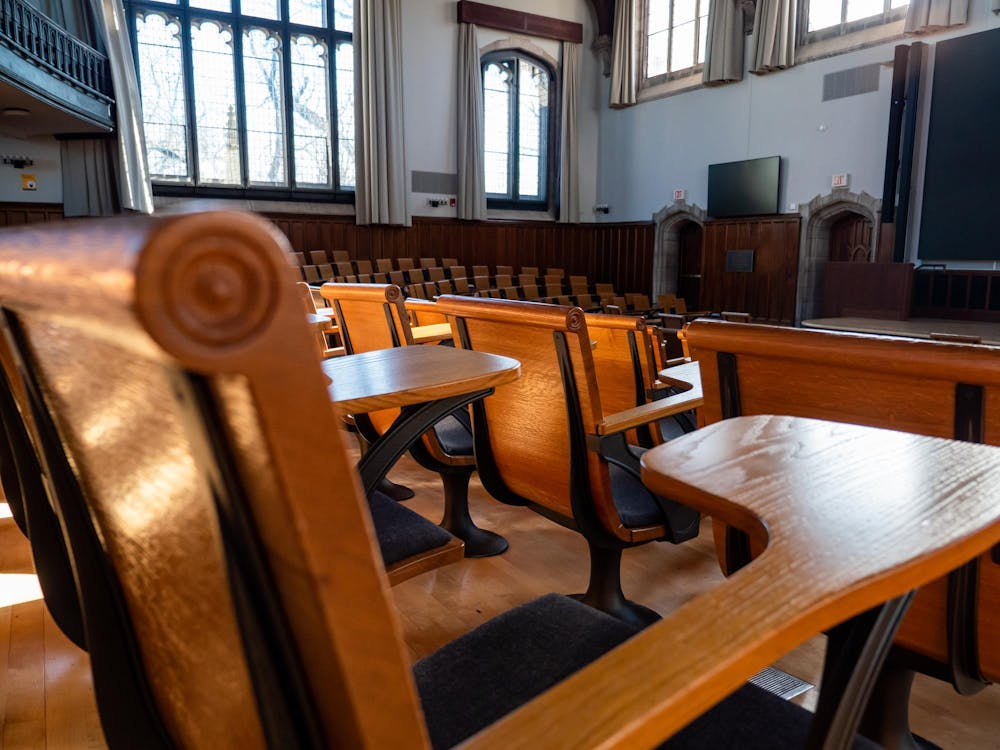Many of the debates that currently have the University's attention — from the determination of the proper roles of the Frist Campus Center and the eating clubs to the Wythes proposal to expand class size — are rooted in an important issue that is seldom discussed with candor at Princeton: race relations.
While plays, discussions and workshops on diversity are a staple of freshman orientation here, once students congeal into closely-knit social groups, most forms of cross-cultural and multiethnic discourse are thrown aside as quickly as those smelly OA hiking boots. Although the administration should be lauded for its efforts to attract more women and minorities to apply for high-ranking faculty positions, it will take much more than the equalization of University employment demographics to ensure that minorities remain and flourish at Princeton.
Although no Princeton students or administrators that I know would espouse overtly racist views, the truth remains that racial roles within the University remain strictly defined and with a few fortunate exceptions, more or less immutable. While the Feb. 15 'Prince' aptly pointed out that ethnic minorities and women are seriously under-represented in top academic and administrative positions, it is also clear that minority groups are over-represented in lower-paying University positions. Friends who have come to visit me from other colleges have remarked how strange it seems to them that a place with such a progressive academic reputation would remain under the influence of de facto segregation within the workplace. The disparity between the roles that minorities and non-minorities are expected to play within the University system surely discourages potential students or faculty members from the under-represented groups from joining the Princeton community.
To make matters worse, the social culture prevailing among many Princeton students also discourages discourse between people from various ethnic and geographical backgrounds. Much has been said about the manner in which the eating clubs discourage interracial and inter-gender discourse. But even on an individual level, I have heard some appalling, if not blatantly racist, statements during my time at Princeton. I was shocked last year when I heard one student make a joke linking students who work in the dining halls with certain ethnic groups and a lower-class economic background. Just recently, a campus publication printed a conversation that had supposedly been overheard in a residential college in which one student stated that he might break his "minority rule" against dating people from other races because he had seen a particularly attractive girl from a minority group.
Admittedly, both of these incidents were intended to be "jokes," yet the fact that this sort of misplaced humor would even be articulated implies that there are certain factions or individuals on campus that are receptive to these offensive comments. A community that is accepting of "Pimps and Hoes" fraternity parties — which work on the assumption that all "pimps and hoes" represent a particular group — is hostile to diversity in general.
These systemic problems will certainly not be easy to solve, and the administration and the admissions office have courageously assumed the difficult task of identifying faculty and students who will continue to encourage diversity and refuse to perpetuate Princeton's legacy of wealth and whiteness. Although the University continues to make progress in its stated goal to foster diversity and cross-cultural discourse, let's not prematurely applaud ourselves. Without a substantive change in the attitudes of University employees and students alike, there is little hope for progress in race relations within the University system. The promise of a diverse and vibrant community, which was first introduced to Princeton by desegregation and continued with coeducation and financial aid reform, remains far from assured. Faith Hillis is from Fairfax Station, Va. She can be reached at fchillis@princeton.edu.







